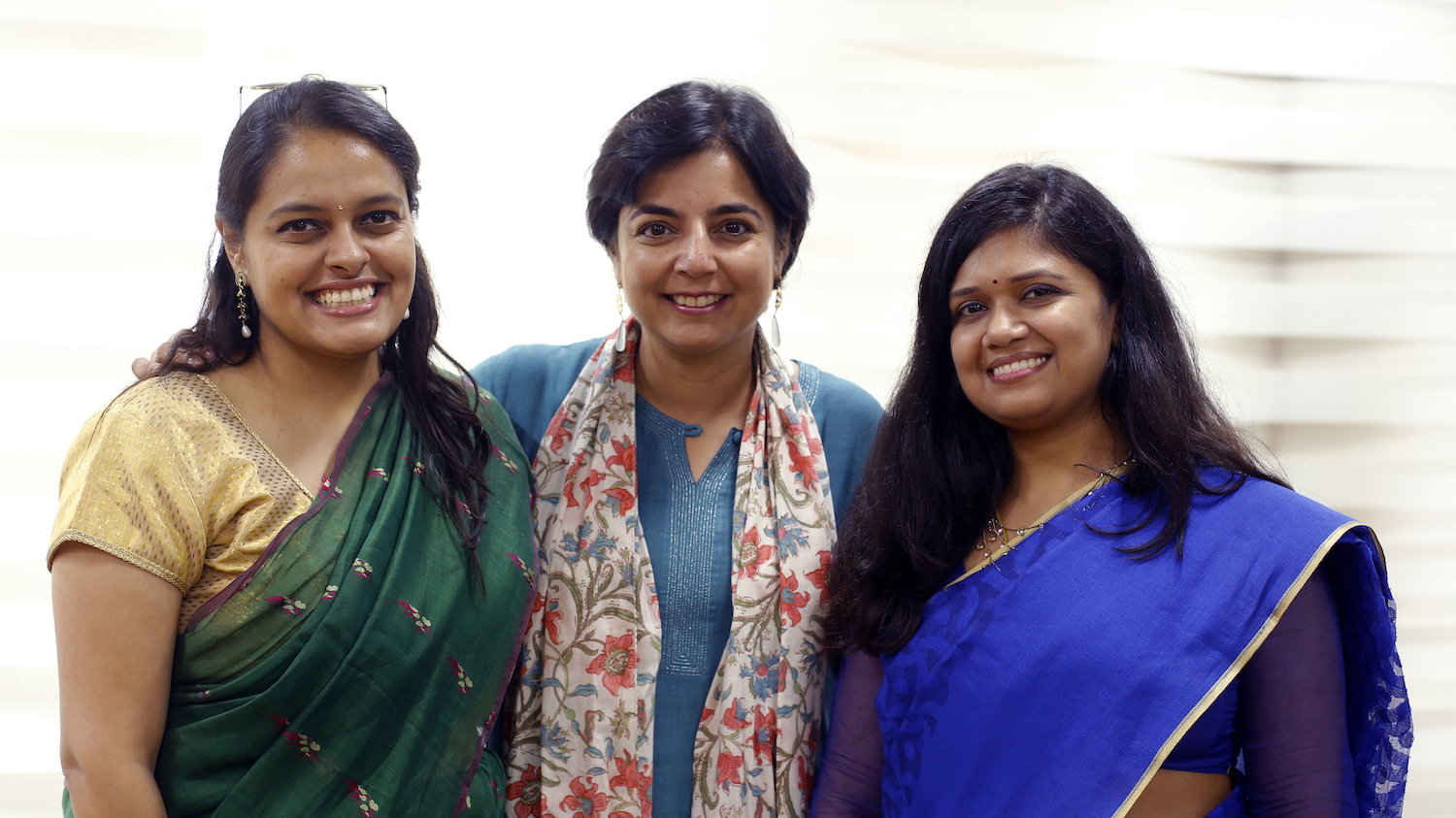World EV Day 2022: Interview with Mahua Archarya, CESL
Electric Mobility Team, Shakti Sustainable Energy Foundation, September 13, 2022

Mahua Acharya with members of the
Shakti Electric Mobility team
World EV Day is marked globally on September 9 every year in celebration of electric mobility. In the Indian context, the day specifically takes on importance, especially with respect to the country’s 2070 net zero ambition. We speak with Mahua Acharya, Managing Director of state-owned energy transition company, Convergence Energy Services Limited on the growing EV ecosystem in India and the electrification of buses and freight transport.
After the successful launch of deploying e-buses, what is the next step?
CESL released a tender for 5450 buses under a ‘Grand Challenge’, for five Indian cities – Bengaluru, Surat, Kolkata, Hyderabad, and Surat. The rates discovered for the e-buses under this challenge were 27% less than diesel and 25% less than CNG buses without subsidy. Now, on the request from MORTH and NITI Aayog, CESL is scaling up the model under ‘National Electric Bus Program (NEBP) to deploy 50 thousand e-buses over a period of five years.
This initiative will encourage more STUs and manufacturers to enter the e-bus business and ecosystem. This mega tender will not be backed by Government subsidies and will be issued in phases. The tender will also explore business cases for contracting of buses, such as the Dry Lease Model that provides STUs the flexibility to use their bus drivers and exercise operational control of buses.
What are your thoughts or experience on EVs in public transport?
Apart from buses, CESL released a tender for procurement of 1 lakh electric 3-wheelers in 2021. But we noticed severe limitations on financing of e-3W and now the deployment is being done through fintech companies.
As far as E4W are concerned, CESL has deployed 1600 E4W for Government institutions, with deployment of 500 electric cars for Central Government and PSUs to follow soon.
Additionally, CESL also plans to provide support for depot electrification of STUs in the country.
With the Grand Challenge tender, CESL successfully gained confidence of STUs, and brought STUs and OEMs together, to work for a common cause.
With e-commerce growing at a fast pace in India, what is the way forward for electrification of urban freight?
Delhi’s aggregator policy is an important step taken for electrification of e-commerce delivery fleet. CESL’s earlier tender of 100 thousand E3W was planned, largely considering the e-commerce delivery applications, where access to financing was seen as a major issue. Also range anxiety is a concern for this segment given their long daily runs, which can be addressed by robust charging infrastructure network.
The major issue for 3 wheelers is financing. Hesitation of financial institutions is a roadblock for the uptake in this segment. It needs to be understood that given the challenges faced by auto rickshaw drivers, easier access to financing in this area is the need of the hour.
What are your thoughts on truck electrification? How important is the role of industry collaboration in their increased uptake?
Industry collaboration is essential for this segment to be successful. However, there are hardly any electric trucks in India, and for the trucking segment to transition to electric, there must be a market demand.
Tata Ace is slated to come out with the electric version of the TATA Ace 407 soon, which could open possibilities of electrification of this segment for logistics deliveries. If compatible with rapid charging, this segment can successfully take off soon.
Currently technology is innovating and changing too fast for the market to stabilize, and the industry is in a ‘wait and watch’ mode to get more models out in this segment.
What are your thoughts on supporting start-ups and manufacturers?
We would certainly like to support startups. Currently, CESL is supporting startups and MSMEs based on the Government of India guidelines. Most work of startups at present is focused on the 2W and 3W segments, is and centered around battery technologies and digital platforms. Significant work is yet to be seen in the E4W and bus space.

